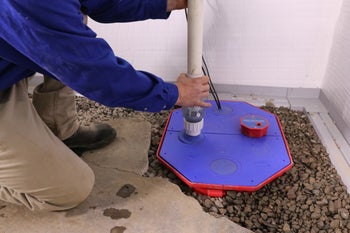The Benefits of Basement Drains for Homeowners
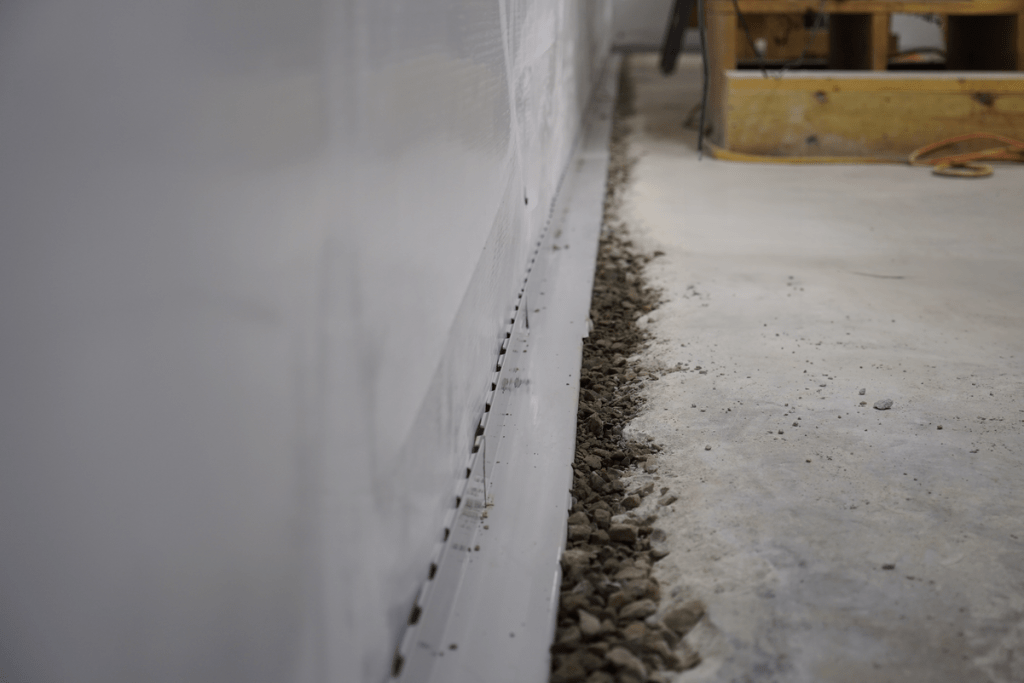
Basement flooding is a homeowner’s nightmare, causing extensive damage to structures and property and posing significant health risks. Without a proper basement drain system, water can easily seep into your basement, leading to mold growth, structural damage, and ruined belongings.
Preventing basement flooding is not just about protecting your investment—it’s about safeguarding your health and well-being. In this article, we’ll explore the benefits that a basement floor drain can provide for your home, how to choose the right basement drains for your needs, and why basement waterproofing is best left to the pros.
What is a Basement Drain System?
A basement drainage system is a specialized network designed to manage and redirect water away from your home’s foundation, preventing flooding and moisture buildup in the basement. These systems typically include basement drains, such as perimeter drains installed along the basement walls, and a basement floor drain that collects water seeping through the floor.
The water is then directed to a sump pump, which expels it away from the house through a discharge line. This setup ensures that any water entering the basement is quickly and efficiently removed, protecting the structural integrity of your home and keeping the basement dry.
Why A Basement Drain is Important
Basement drains offer peace of mind for homeowners affected by basement moisture issues, such as:
Water Intrusion
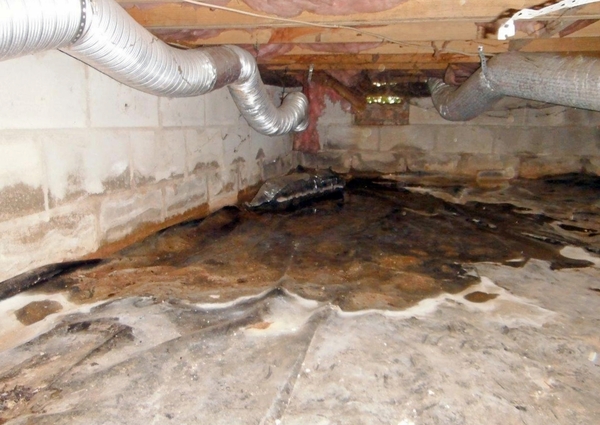
A properly installed basement drain, including perimeter drains and a basement floor drain, ensures that water in the basement is swiftly collected and removed. This proactive approach stops water from seeping through walls and floors, preventing leaks or flooding and keeping your basement dry.
Poor Air Quality
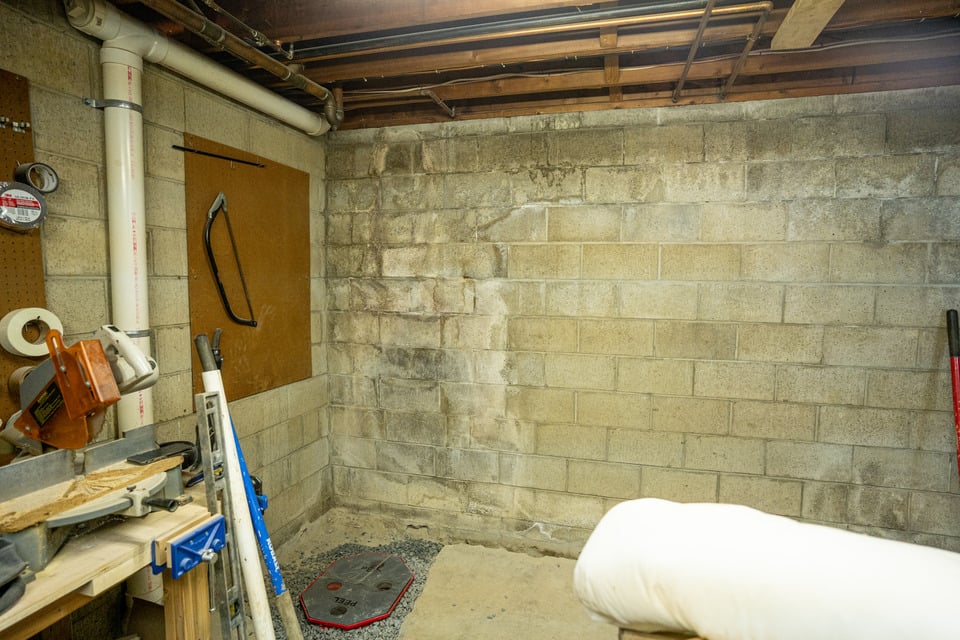
When water is allowed to accumulate in a basement, it creates a damp, humid environment ideal for mold and mildew growth. The benefit from basement drains is clear: by keeping your basement dry, these drainage systems help maintain a healthier indoor environment, protecting your family’s health.
Structural Instability
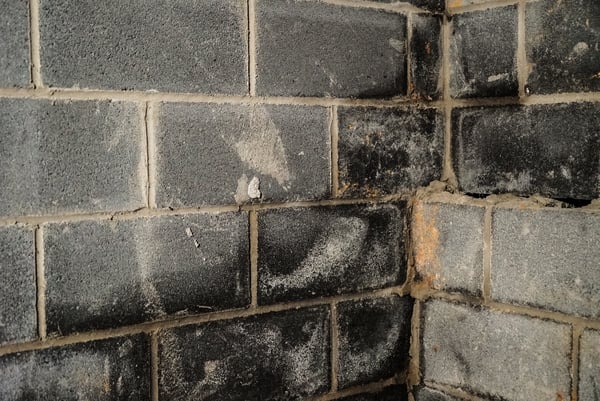
Water intrusion can lead to the erosion of soil around the foundation, causing walls to crack or bow and weakening the structural integrity of your home. Basement drains, such as a basement floor drain and perimeter drains, work to prevent water from pooling around the foundation, reducing the risk of damage.
Are Basement Drains Enough?
Basement drains are highly effective in preventing moisture issues by efficiently managing water that enters the basement. These systems act as a first line of defense, ensuring that any water entering the basement is quickly removed before it can cause significant problems. However, while basement drains are an essential component of moisture control, more in-depth basement waterproofing provides the best option for peace of mind.
Comprehensive waterproofing solutions such as water-resistant vapor barriers and durable backup sump pumps offer additional support for basements prone to moisture issues. These methods address the root causes of water intrusion, providing a more robust and long-term solution. By combining basement drainage systems with thorough waterproofing techniques, homeowners can ensure complete protection against water in the basement.
Go with Groundworks for Expert Basement Waterproofing
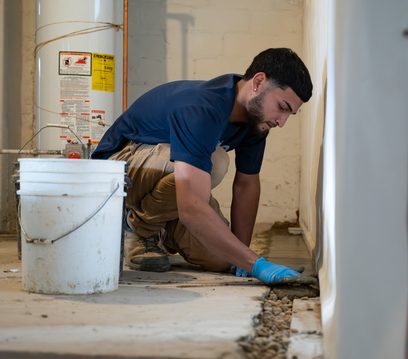
Don’t let moisture and water damage compromise the safety and value of your home. Trust the waterproofing experts at Groundworks to handle all your basement drainage solutions. Our top-of-the-line basement drainage systems are designed to effectively manage and redirect water, providing you with long-lasting protection.
Take the proactive step to safeguard your home today. Contact our team for a no-cost, no-obligation basement inspection and waterproofing estimate.
Basement Drain FAQs
Subtitle
Poor drainage can lead to water accumulation around the foundation, causing soil expansion and contraction. Over time, this can weaken the foundation and lead to cracks and other structural issues.
While it’s possible to install a vapor barrier in your basement on your own, we don’t recommend it. Vapor barrier installation involves many complicated steps, such as securing vapor barrier sheets to walls and installing an interior drainage system. If you make a mistake, you won’t be able to protect your basement. We suggest leaving things to the experts!
It’s time to consider installing or upgrading your sump pump if you notice problems like water in your basement, mold, efflorescence, musty odors, and elevated humidity. These issues will not resolve themselves; contact Groundworks for a free inspection and sump pump estimate.


